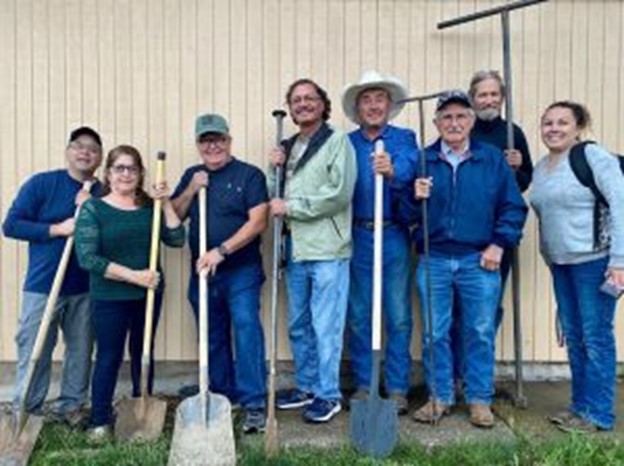The small Rio Arriba County village of Canjilon is a living testament to the deep-rooted heritage of its community. Home to nearly 300 residents, Canjilon’s roots stretch thousands of years, during which the Pueblo, Apache, and Navajo peoples have called the surrounding lands home.
Water scarcity has always been a defining challenge in high desert communities, with sparse population density and modest financial resources compounding the problem. However, in recent years, prolonged drought and unpredictable climate shifts have nudged the village’s already vulnerable water supply and vital infrastructure toward a tipping point.
Seeking a sustainable future, the Canjilon Mutual Domestic Water Consumers Association (MDWCA) teamed up with the Army Corps of Engineers to revamp the ailing infrastructure through an eight-stage project to replace and relocate its distribution system. With just the first three phases priced at $2 million, the association had to secure $550,000 in matching funds to get the project started. Even after dedicated fundraising, they faced a shortfall of nearly $150,000. To navigate this challenge, the board turned to RCAC.
Rural Community Assistance Corporation (RCAC) is a nonprofit Community Development Financial Institution (CDFI) that provides training, technical and financial resources, and advocacy to help rural communities and businesses achieve their goals and visions. RCAC’s loan fund fills financing gaps in New Mexico rural communities and 12 other western states, including Alaska, Arizona, California, Colorado, Hawaii and Pacific islands, Idaho, Montana, Nevada, Oregon, Utah, Washington, and Wyoming. RCAC offers loans for affordable housing, environmental infrastructure, community facilities, and small businesses.
By offering technical support and unlocking federal, state and regional funding opportunities, RCAC enables small rural, underserved and Indigenous communities to achieve long-term water sustainability.
Source article written by Elliott Bochstein, RCAC staff writer

